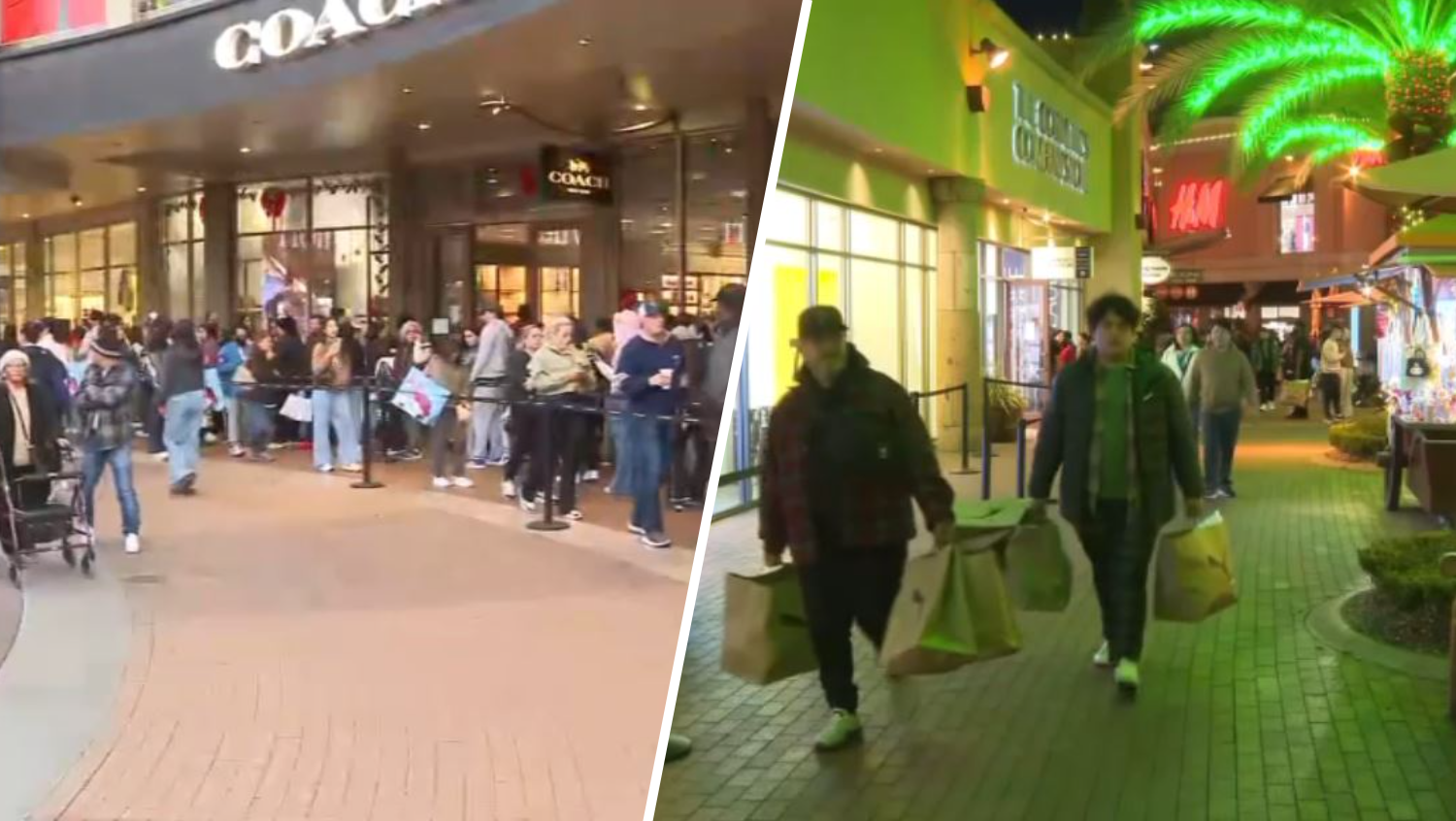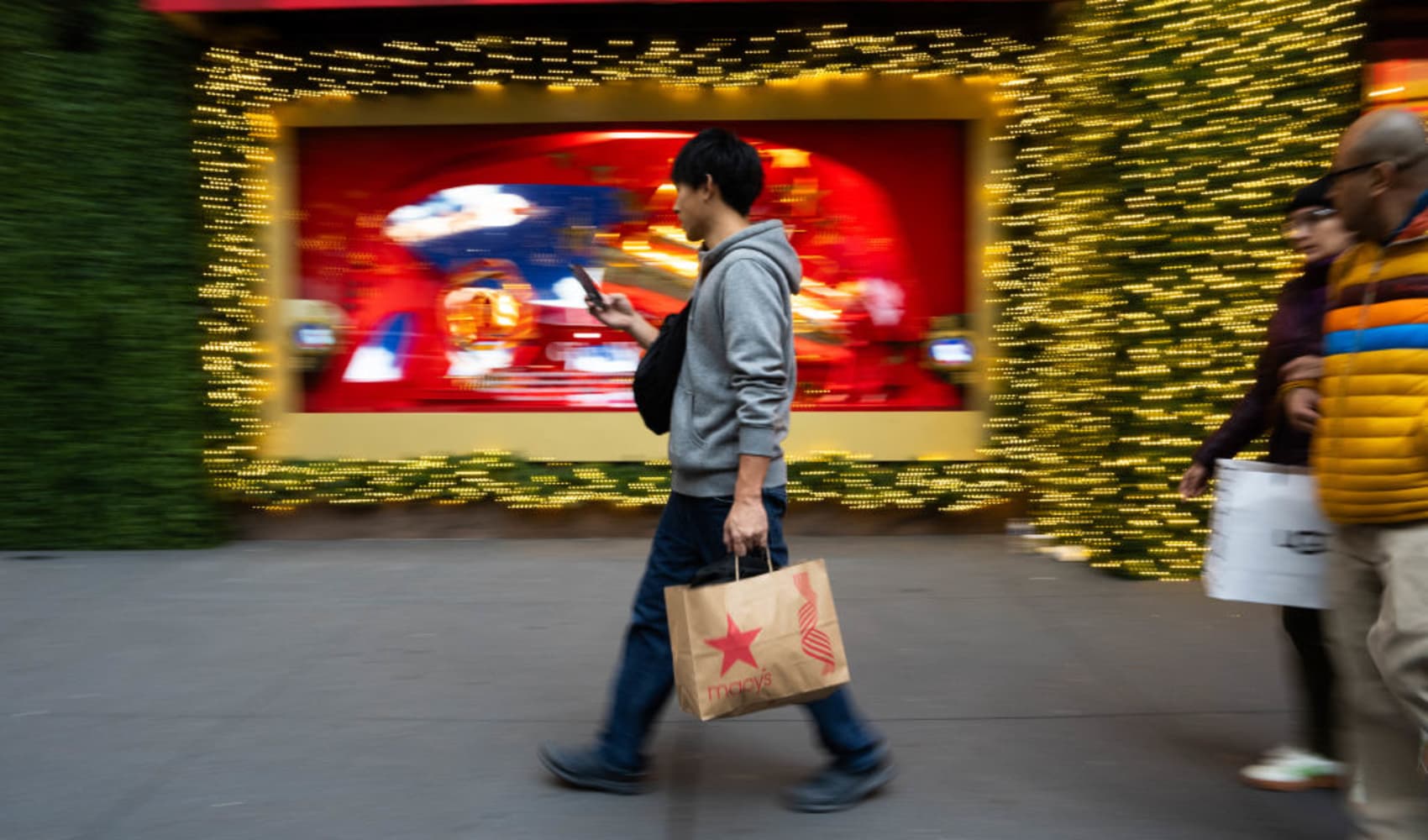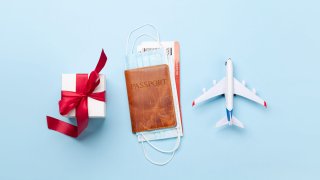
Flights are booked. Bags are packed.
To cancel Christmas travel plans seems unfathomable at this point.
But for many, so does the speed at which the omicron variant is spreading. The highly transmissible Covid-19 variant — which was first detected in late November but has since been detected in nearly 90 countries — is causing travel uncertainty around the globe.
Still, some in the medical and research fields are striking a different tone this year than 2020's "stay home, stay safe" mantra — at least for now.
Get top local stories in Southern California delivered to you every morning. Sign up for NBC LA's News Headlines newsletter.
"At this point in the pandemic, we've learned so much about this virus and how to keep ourselves from spreading infection to others — and from acquiring infection," said Stephen Kissler, research fellow at Harvard T. H. Chan School of Public Health, in an online discussion on Dec. 9 with "The World" public radio program.
If certain precautions are taken, it's possible to "travel relatively safely," he said.
1. Get boosted
Money Report
"If you're vaccinated and boosted, and you take care when you go into congregate settings like airports to make sure you continually wear your mask, you should be okay," Dr. Anthony Fauci, the top U.S. infectious disease expert, said on Dec. 19 on NBC's "Meet the Press."
He said there's a "major difference with regard to the risk of severity" between "a vaccinated and boosted person who has an infection and someone who has an infection who's never been vaccinated."
Moderna announced this week that lab trials showed its vaccine boosters yield a significant increase in antibody levels against omicron. Pfizer announced similar results earlier in the month.
Dr. Eric Topol told CNBC on Monday that those with three shots are 95% protected against the delta variant, which is still circulating.
The omicron variant is producing five times as many "breakthrough cases" among vaccinated people, he told Jim Cramer on "Mad Money." However, "most of them have been reported to be pretty mild so far."
"We're going to see a fairly large number of new infections," said Topol. "A fraction of those are not going to be mild … we just don't know what that fraction is yet."
2. Use rapid tests before (small) gatherings
"Rapid tests provide the best protection we have against the spread of disease," said Kissler. "I'm beginning to think more and more of [vaccinations] as a preventive against disease and severe illness — and testing as a preventive against spread."
He recommended using rapid tests immediately prior to an event, ideally an hour or two before it starts. He also suggests keeping Christmas gatherings small and ventilating the room.
"No matter how cold it is outside, I'm going to have my windows cracked by four to six inches," he said.
Since rapid tests aren't as accurate as PCR tests, Topol recommended using them frequently to increase confidence in the results.
Similarly, Fauci said, "If you do them sequentially — one or two or more — you're going to get a result that would be an accurate result."
3. Focus on the airport
"Given the number of new cases reported daily, infected people are at airports and getting onto airplanes," said Sheldon H. Jacobson, a professor of computer science at the University of Illinois at Urbana-Champaign who studies public health and aviation security.
But it isn't the flight that should concern travelers the most, he said.
"The riskiest part of air travel is the time before and after flights, not during flights," he said. "Waiting in a terminal prior to boarding is a vulnerable time and environment for virus spread."
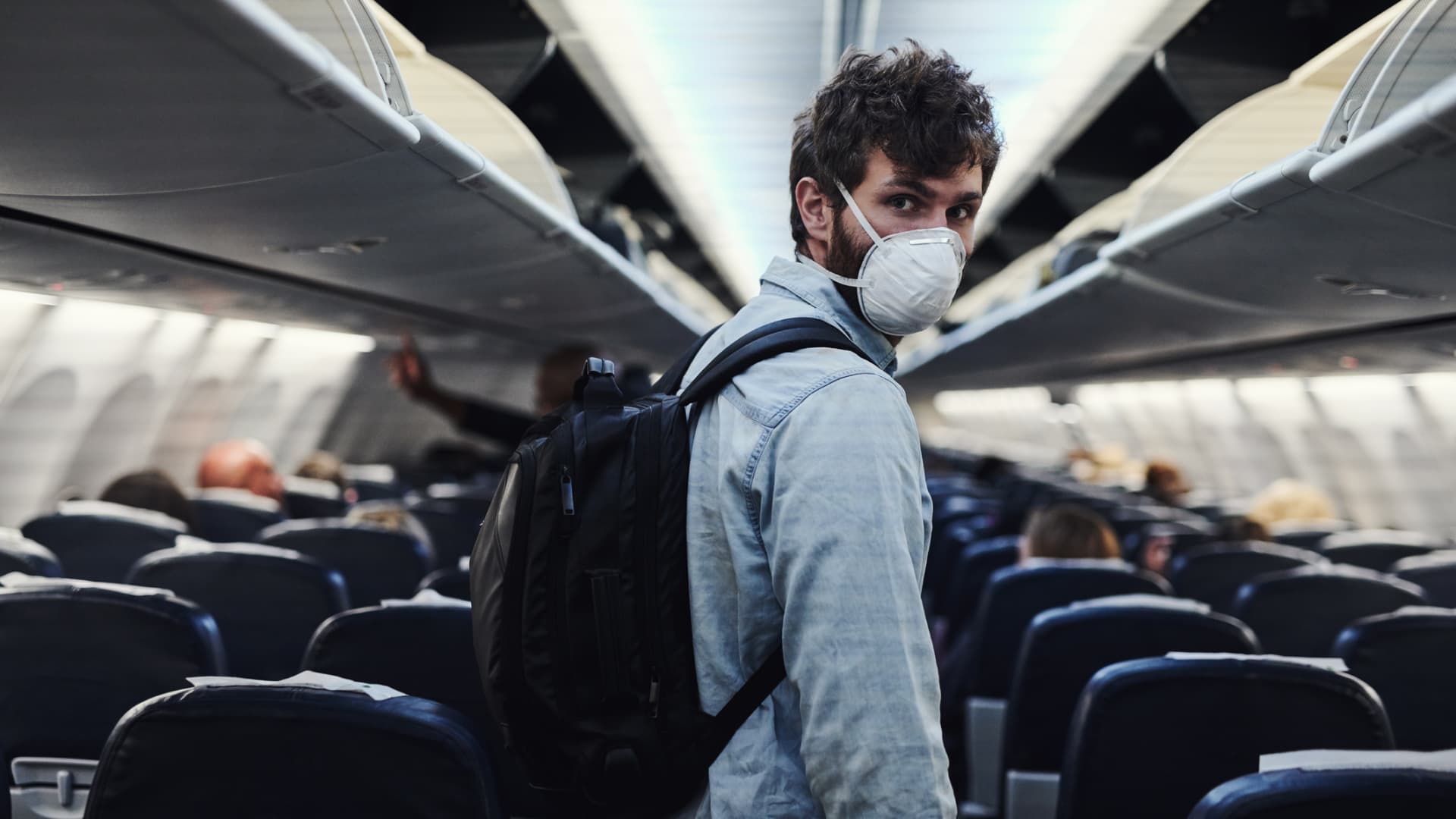
Kissler agreed, saying it doesn't make sense to pull your mask down in the airport, only to get serious about it on the flight.
"You're most likely to get infected while standing in line at security at the airport or waiting for a rental car," said Kissler. "Keep your mask on [while aboard] the plane for sure, but … be very vigilant about masking throughout the entire process."
4. Upgrade your mask when traveling
To travel safely in the era of omicron, people need high-quality face masks, said Jacobson.
"This means N95 and KN95 masks," he said.
In an study conducted last August, researchers from universities including Yale and Stanford found surgical masks were 95% effective at filtering out virus particles, compared with 37% for cloth masks.
While N95 and Chinese-made KN95 masks have "minor differences," according to the air filter company, Smart Air, both are designed to filter 95% of particles in the air.
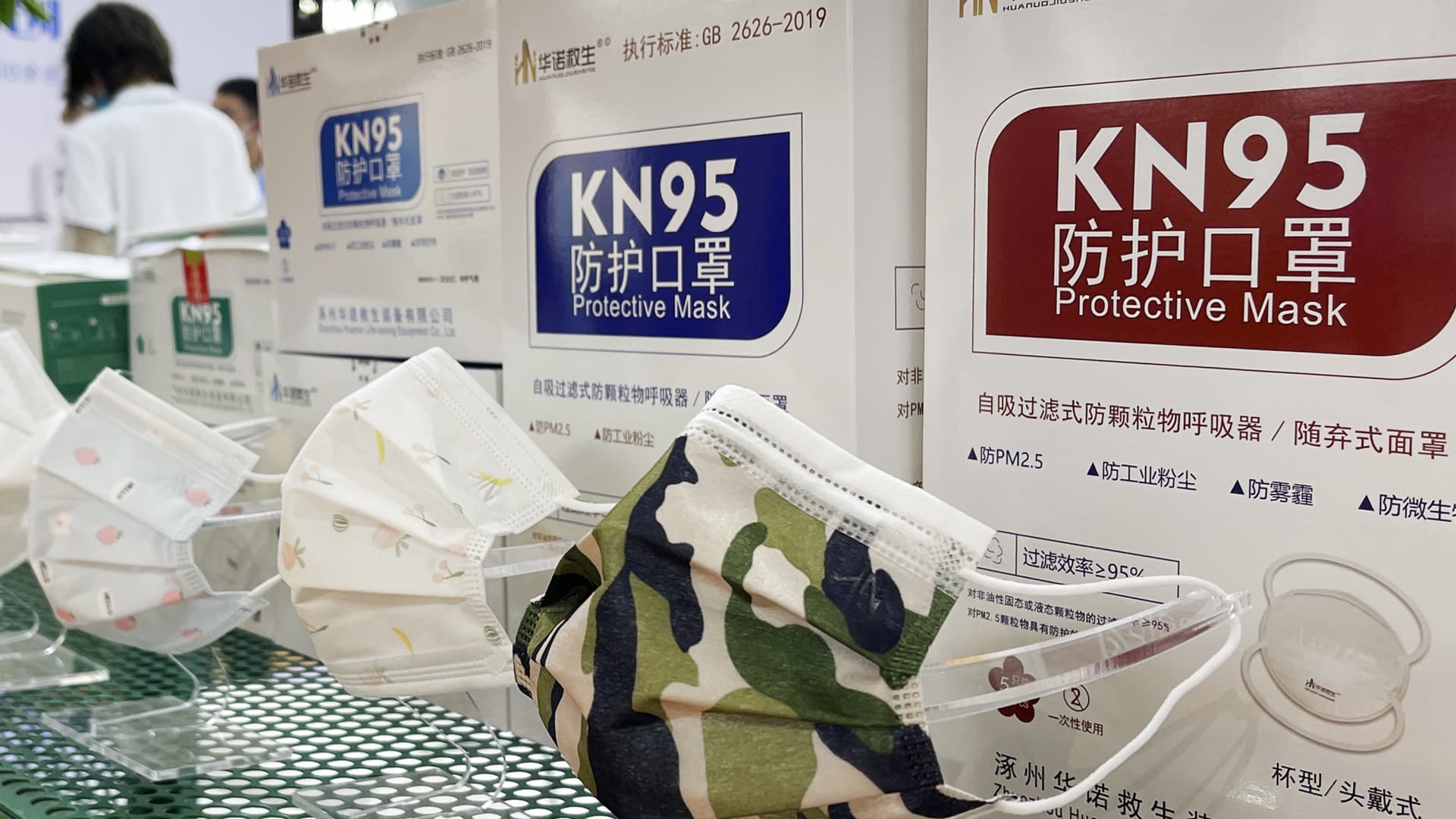
"Airlines providing such face coverings to every flyer would be an effective way," said Jacobson. "I would add interstate bus lines and trains — like Amtrak — to this group."
For extra protection, the U.S. Centers for Disease Control and Prevention recommends wearing two masks: a disposable mask underneath and a fabric mask on top. Wearers of three-ply disposable masks can also implement the "knot and tuck" technique, which involves knotting the ear loops close to the mask and tucking in the excess material for a more secure fit.
Lastly, stay the course during the trip.
"Vaccination, high-quality testing, and high-quality face masks ... each form a layer of protection," said Jacobson. "Any weakness in one or more of the layers weakens a person's and a community's safety, and effectively empowers the virus."
When not to travel
The CDC recommends that people do not travel if they:
- Have been exposed to Covid-19, unless they have been fully vaccinated or recovered from Covid-19 in the past 90 days
- Are sick
- Test positive for Covid-19 and haven't ended isolation, even if fully vaccinated
- Are waiting for Covid-19 test results
Advice may change
Travelers should note that as more is learned about the omicron variant, travel advice may change.
In a Twitter post on Wednesday, Bill Gates announced he is canceling "most" of his Christmas travel plans due to the variant.
Speaking at a press conference on Monday, the World Health Organization Director-General Tedros Adhanom Ghebreyesus urged holidaymakers to reconsider some events: "It is better to cancel now and celebrate later than to celebrate now and grieve later."


